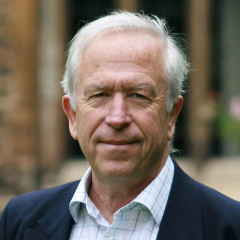You are not currently logged in. Please create an account or log in to view the full course.
Correspondence, Coherence and Pragmatism
- About
- Transcript
- Cite
Truth
In this course Professor Simon Blackburn FBA (University of Cambridge) explores truth. In the first module, we consider the three main classical approaches to truth: correspondence, coherence and pragmatism. After that, in the second lecture we look at Charles’ Peirce’s methods of fixing belief, and the role of the scientific method in testing empirical claims. In the third module, we introduce deflationism and examine the utility of a deflationary account of truth as well as Frank Ramsey’s theory of redundancy. In the fourth module we examine various areas of enquiry in relation to truth, before finally in the fifth module, moving on to assess the value of truth in ethics and aesthetics.
Correspondence, Coherence and Pragmatism
In this module, we explore three famous classical approaches, and investigate what insight they can give to conduct a philosophical analysis of truth. We look at (i) truth as correspondence with the facts, and the problem of vacuity (ii) truth as coherence of a set of beliefs, and the problem of coherent fictions (iii) truth as success in action, and the problem of success in destruction.
Cite this Lecture
APA style
Blackburn, S. (2022, April 05). Truth - Correspondence, Coherence and Pragmatism [Video]. MASSOLIT. https://massolit.io/courses/truth/varieties-of-enquiry
MLA style
Blackburn, S. "Truth – Correspondence, Coherence and Pragmatism." MASSOLIT, uploaded by MASSOLIT, 05 Apr 2022, https://massolit.io/courses/truth/varieties-of-enquiry

